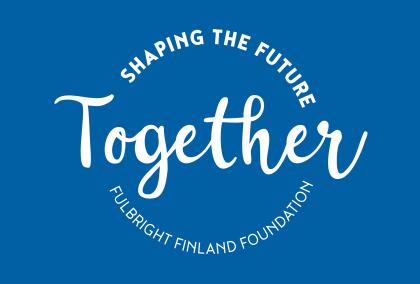

June 6, 2016
The Fulbright Transatlantic Roundtables on U.S. Federal Student Aid related challenges brought together representatives from four Finnish universities (Aalto University, Hanken School of Economics, University of the Arts Helsinki, Sibelius Academy and Theater Academy, University of Turku), the Fulbright Center and the Ministry of Education and Culture. The Center called the roundtable together to assess the current challenges and based on the assessment to chart a concrete course of action to solve the long-standing U.S. Federal Student Aid related challenges that continue to hinder the mobility of U.S. students to Finnish higher education institutions.
In the Capacity Building Workshop organized by the Fulbright Center for Finnish higher education institutions in April 2016, the participants asked the Center to organize a roundtable on this specific issue. The Roundtable was a direct response to and a follow-up from the request from Finnish HEIs.
Roundtable Participant Comments
- University of Turku and the Sibelius Academy have received the U.S. Department of Education (USDED) deferral-only status. Application process of the status was seen as labor-intensive and problematic.
- Participants saw it important to gain the U.S. Federal Student Aid related full status or deferral-only status, because of the U.S. degree students entering the Finnish institutions (credits earned in a Finnish institution as an exchange students are usually counted to the degree issued by the U.S. home institution, which often has the recognition from the U.S. Department of Education).
- Participants saw a need for a nation-wide solution to solve the challenge related to the U.S. Federal Student Aid deferment and portability. For example, Sibelius Academy mentioned that applications to their institution from U.S. students have tripled. Next year, with the introduction of tuition fees in Finland, it is expected that this issue will only increase in its significance.
- Instead of each university trying to navigate the complicated U.S. Department of Education process on their own, it would make more sense to pursue a nation-wide solution for the problem. Ministry of Education and Culture’s lead on finding a nation-wide solution was very much welcomed. Currently, Finland does not have a general agreement with the U.S. Department of Education and so far each Finnish institution has individually applied for the U.S. Department of Education recognition.
Outcomes and Next Steps from the Roundtable
- In order to compile a full listing of Finnish universities that have applied for and acquired the U.S. Department of Education recognition, the representative from the University of the Arts Helsinki will meet the Finnish university student affairs heads at their national meeting where she will find out which Finnish universities have the U.S. Department of Education recognition (either full status or deferral-only status) and whether the universities see a need for a nation-wide solution for this challenge. University of the Arts Helsinki representative will inform the Ministry and the Center on the results. (Completed August 15, 2016)
- After the roundtable, the Fulbright Center contacted the U.S. Department of Education and acquired information on the current point person on the USDED side and passed on the information to the Ministry. (Completed June 7, 2016)
- After receiving the summary covering all the universities, the Ministry will contact the U.S. Department of Education by the end of August 2016 to negotiate possibilities for a nation-wide solution for Finnish institutions.
- Before contacting the U.S. counterpart (by the end of August 2016), the Ministry will produce a material packet on Finnish universities (including, for example, information on their quality and financial status) which can be used in the negotiations with the U.S. Department of Education.
- The Ministry of Education and Culture has taken this issue under advisement and action and is currently working on it. The Ministry will inform the Finnish institution on the progress of the negotiations as soon as possible. Ministry contact: Birgitta Vuorinen.
Background
Those U.S. students interested in studying in a Finnish institution face the following challenges:
- Difficulty in taking U.S. Federal Student Aid to Finland for studies at Finnish institutions
- Difficulty in temporarily postponing federal student loan payments, i.e. deferring existing federal student loan payments, while studying in a Finnish institution.
In order to overcome these U.S. student mobility related obstacles, Finnish institutions should apply for a certain type of recognition from the U.S. Department of Education. There are two different types of U.S. Federal Student Aid related recognitions for foreign institutions that would help U.S. students’ financial situation during their studies in Finland:
- A Finnish institution could apply to become an approved foreign school in the U.S. Department of Education records. This “full” recognition would allow a U.S. student to receive U.S. federal student aid for their studies at a Finnish higher education institution.
- Another alternative would be to apply for a somewhat “lighter” recognition from the U.S. Department of Education which would not allow U.S. students to receive federal aid for their studies in a specific Finnish institution, but would allow them to defer their existing federal student loan payments while studying in a Finnish institution.


